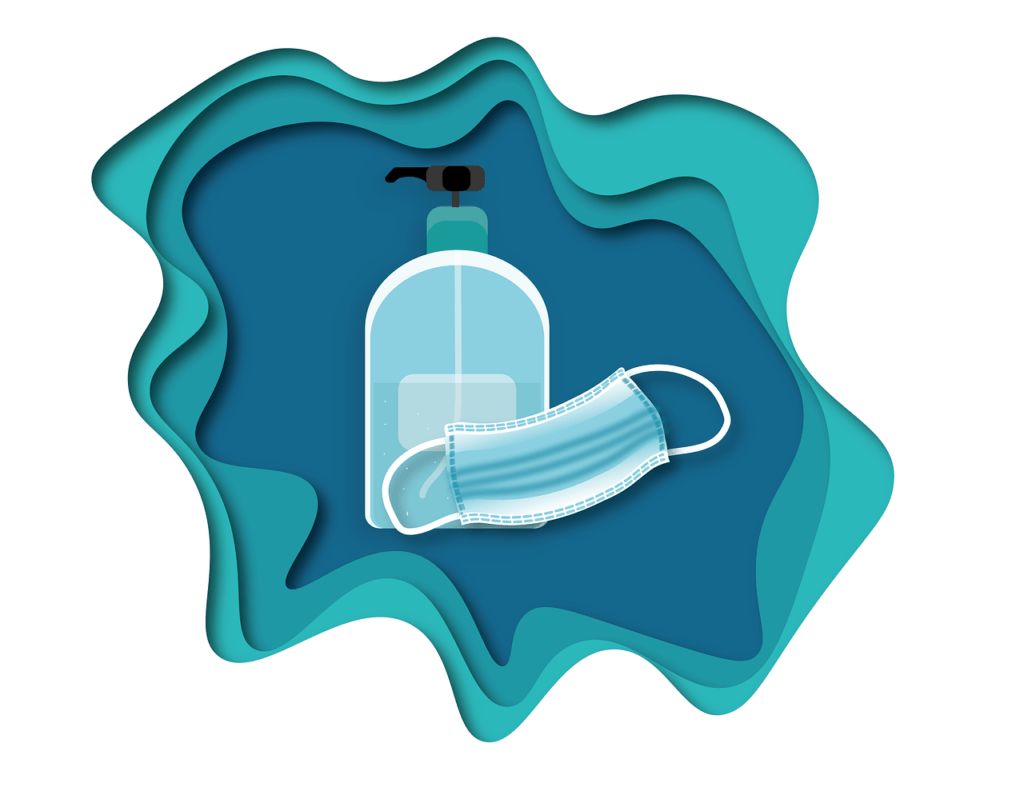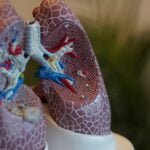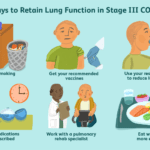
Living with chronic obstructive pulmonary disease (COPD) can be challenging, but understanding the factors that can exacerbate the condition is crucial for managing it effectively. In this article, we will explore the various factors that can make COPD worse, from smoking and air pollution to respiratory infections and poor indoor air quality. By gaining insight into these triggers, you can take proactive steps to minimize their impact and improve your quality of life. So let’s delve into the potential culprits that can worsen COPD and uncover ways to stay one step ahead.

1. Smoking
Smoking is one of the primary factors that can significantly worsen COPD. Tobacco smoking, whether it be through cigarettes, cigars, or pipes, exposes your lungs to harmful chemicals and substances that can damage the lung tissue and airways. The toxic smoke from cigarettes contains thousands of chemicals, including nicotine and carbon monoxide. These substances restrict the airflow in your lungs and make it much harder to breathe. By continuing to smoke, you not only exacerbate your COPD symptoms but also increase your risk of developing other respiratory conditions such as lung cancer.
Secondhand smoke exposure is another detrimental factor for COPD sufferers. Even if you do not smoke, being around others who smoke can still harm your lungs. Inhaling secondhand smoke can irritate and inflame your airways, triggering COPD symptoms and making breathing more difficult. It is vital to avoid environments where smoking occurs or to insist on smoke-free spaces to protect your respiratory health.
2. Air Pollution
Both outdoor and indoor air pollution are notorious for exacerbating COPD symptoms and worsening lung function. Outdoor air pollution, such as that caused by industrial emissions, vehicle exhaust fumes, and fine particulate matter, can significantly reduce the air quality you breathe. These pollutants can irritate your airways, leading to inflammation and making it harder for you to breathe. It is important to limit your exposure to heavily polluted areas and consider wearing a mask when necessary, especially during peak pollution times.
Indoor air pollution is equally concerning, as many common household items and activities contribute to poor air quality inside your home. Smoke from cooking, burning wood or coal, and using certain cleaning products can release harmful pollutants into the air that may further irritate your lungs. Ensuring proper ventilation, using air purifiers, avoiding smoking indoors, and keeping the living environment clean can help reduce indoor air pollution and ease COPD symptoms.
3. Respiratory Infections
Respiratory infections can have a severe impact on individuals with COPD, leading to increased coughing, production of mucus, and shortness of breath. Viral infections, such as the common cold or influenza, can exacerbate COPD symptoms and make it harder for you to breathe. Taking precautionary measures, such as frequent handwashing and avoiding close contact with individuals who are sick, can help reduce the risk of contracting viral respiratory infections. It is also advisable to get vaccinated against influenza and pneumococcal pneumonia, as these vaccinations can lower the chances of experiencing severe respiratory infections.
Bacterial infections, such as pneumonia, can also pose a significant threat to individuals with COPD. When your lungs are already compromised, bacteria can easily invade and cause further inflammation and damage. If you experience any signs of a respiratory infection, such as increased cough, fever, or worsening of breathing difficulties, it is crucial to seek medical attention promptly. Early treatment with appropriate antibiotics can help prevent the infection from worsening and mitigate the impact on your COPD.
4. Inadequate Treatment
Proper management and adherence to COPD treatment are vital for controlling symptoms and slowing down the progression of the disease. Non-adherence to prescribed medications, such as bronchodilators and corticosteroids, can lead to increased frequency and severity of COPD exacerbations. These medications are specifically designed to relax and open up your airways, making it easier for you to breathe. By neglecting your medication regimen, you may compromise the effectiveness of your treatment and allow your COPD to worsen over time.
Mismanagement of COPD symptoms can also contribute to the worsening of the condition. It is important to recognize the early signs of an exacerbation, such as increased breathlessness, persistent cough, and changes in the color or amount of phlegm. Acting promptly to manage these symptoms, such as adjusting medication dosages, using rescue inhalers, and seeking medical advice, can help prevent exacerbations and minimize their impact on your daily life.

5. Exposure to Lung Irritants
Exposure to various lung irritants can aggravate COPD symptoms and cause further damage to your respiratory system. Occupational exposure to substances like dust, chemicals, and fumes, especially in industries like construction or mining, can lead to lung inflammation and exacerbate your COPD. It is crucial to take necessary precautions and use protective equipment, such as masks and respirators, to minimize your exposure to these irritants in the workplace.
Chemical fumes and vapors present in household cleaning products, paint, or certain hobbies like woodworking can also worsen COPD symptoms when inhaled. Ensuring proper ventilation while using these substances and wearing a mask when necessary can reduce the risk of lung irritation. Additionally, being mindful of your surroundings and avoiding areas with high levels of air pollution or toxic substances can help protect your lungs and prevent further deterioration of your COPD.
6. Weather Changes
Weather conditions can significantly impact individuals with COPD, particularly extreme temperatures and changes in humidity levels. Cold weather can constrict your airways, leading to increased breathlessness and discomfort. It is essential to stay warm by layering clothing, using scarves or masks to cover your mouth and nose, and seeking shelter from cold winds whenever possible.
Hot and humid weather can also pose challenges for COPD sufferers. High humidity can make breathing more difficult as the air feels heavier, and excessive heat can lead to dehydration and fatigue. It is recommended to stay in air-conditioned spaces during hot and humid weather, drink plenty of fluids to stay hydrated, and avoid strenuous activities during the hottest parts of the day. By being aware of weather conditions and taking appropriate precautions, you can minimize the impact on your COPD symptoms.

7. Sedentary Lifestyle
Leading a sedentary lifestyle can negatively affect both your overall health and COPD management. Lack of physical activity can lead to weak muscles, including those involved in breathing, making it harder for you to breathe efficiently. Regular exercise, such as walking, swimming, or cycling, can strengthen your muscles, improve lung function, and enhance your overall fitness. It is important to consult with your healthcare provider to determine suitable exercise options based on your individual capabilities and limitations.
Poor overall fitness, including weak cardiovascular health and decreased lung capacity, can significantly contribute to the worsening of COPD. By maintaining a regular exercise routine and gradually increasing your physical activity, you can improve your lung function, endurance, and overall well-being. Remember to listen to your body and pace yourself during exercise, taking breaks when needed, and avoiding activities that cause excessive breathlessness or discomfort.
8. Poor Nutrition
Your diet plays a crucial role in managing COPD effectively. Unhealthy dietary habits, such as consuming high amounts of processed foods, sugary snacks, and saturated fats, can lead to weight gain and inflammation, further complicating your COPD symptoms. It is important to prioritize a well-balanced diet consisting of fresh fruits, vegetables, whole grains, lean proteins, and healthy fats. These nutrient-dense foods provide essential vitamins, minerals, and antioxidants that support your respiratory health and overall well-being.
Malnutrition is also a concern for individuals with COPD, as it can weaken your immune system, reduce muscle strength, and impair your ability to fight off respiratory infections. If you experience unintentional weight loss or have difficulty maintaining a healthy weight, it is crucial to consult with a registered dietitian or healthcare provider to develop a personalized meal plan that meets your specific nutritional needs. Proper nutrition can help optimize your body’s functioning, improve energy levels, and enhance your ability to cope with COPD.
9. Psychological Factors
Psychological factors, such as stress, anxiety, and depression, can have a significant impact on your COPD symptoms and overall quality of life. COPD is a chronic condition that requires ongoing management and lifestyle adjustments, which can be emotionally challenging. Stress and anxiety can worsen your breathing difficulties and trigger COPD exacerbations. It is important to find healthy coping strategies to manage stress, such as relaxation techniques, deep breathing exercises, or engaging in activities that bring you joy and relaxation.
Depression is also prevalent among individuals with COPD, as the limitations imposed by the condition can lead to feelings of isolation, sadness, and loss of interest in activities. It is crucial to seek support from healthcare professionals, friends, and family members to address these psychological aspects and receive appropriate treatment if necessary. Participating in support groups or counseling sessions can provide a safe space to express your emotions, share experiences, and learn effective coping strategies to enhance your emotional well-being and overall management of COPD.
10. Coexisting Medical Conditions
Having coexisting medical conditions can complicate COPD management and worsen the overall prognosis. Conditions such as heart disease, diabetes, and obesity are frequently seen in conjunction with COPD and can significantly impact your respiratory health. Heart disease can strain your heart and lungs, making breathing even more challenging. Diabetes, especially if poorly controlled, can lead to increased inflammation and susceptibility to respiratory infections. Obesity can further limit your lung capacity and worsen breathlessness due to excess weight.
Effective management of these coexisting medical conditions is essential to improve COPD outcomes. Regular check-ups with healthcare professionals, adhering to prescribed treatments and lifestyle modifications, and maintaining a healthy weight can contribute to better overall health and minimize the impact of these comorbidities on your COPD. It is crucial to prioritize your health by following medical advice, attending regular appointments, and actively engaging in self-care practices to achieve optimal respiratory and overall well-being.









